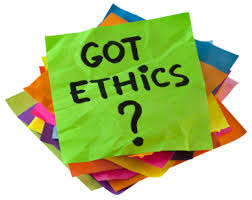4 Steps to Building a More Ethical Organization

Ethics are the principles and values an individual uses to govern his activities and decisions. In an organization, a code of ethics is a set of principles that guide the organization in its programs, policies, and business decisions. The ethical philosophy an organization uses to conduct business can affect its reputation, productivity, and bottom line.
Motivate Ethics: Secondly, guide personnel to firmly embrace the goal of ethically achieving the positive deviant’s social good. When a positive deviant’s social good, or the inspiration behind their work, is presented to others in an empowering manner, it can be contagious for an organization. It naturally and originally spreads the commitment to the social good, and its ethical foundation, quickly and efficiently.
Instructions
-
1
Set the Bar.
First, use your organization’s positive deviants to establish a clear, specific standard of ethical values, attitudes and behaviors. Positive deviants are highly respected individuals who are consistent top performers and can typically be identified simply by asking management who stands out. They model the ideal ethical attitudes and best practices all others should achieve and are therefore the primary creators and preservers of the organization ethics. Positive deviants are motivated by a commitment to ethically creating a “social good” for their customers and for their organization.
More specifically, once a strong understanding of the positive deviants social good has been established, it can be packaged into a short, emotionally powerful statement that excites and empowers other employees. -
2
Sustain Ethics.
Next, ensure the commitment of the ethics is sustainable, even in the face of contrary pressures. True ethical behavior is profound and long term. It is a way of doing business that is so ingrained in the organization that people cannot imagine functioning any other way. If the concepts are focused around the positive deviant ethics, new learning occurs that can be so complete that people do not even recognize they were ever any other way. -
3
Scale Ethics.
Finally, Engage a critical mass of the organization quickly to ensure that ethics pervades all aspects of the organization and becomes a true reflection of the organization as a whole. At the same time, individuals most display ethical behaviors in ways that are unique to their functions and personality. -
4
Conclusion.
The notion of an ethical organization may seem abstract, yet people who work in an organization with healthy ethics absolutely know it. They love their work, and they contribute to the success of the organization and ultimately create better, more successful institutions.


